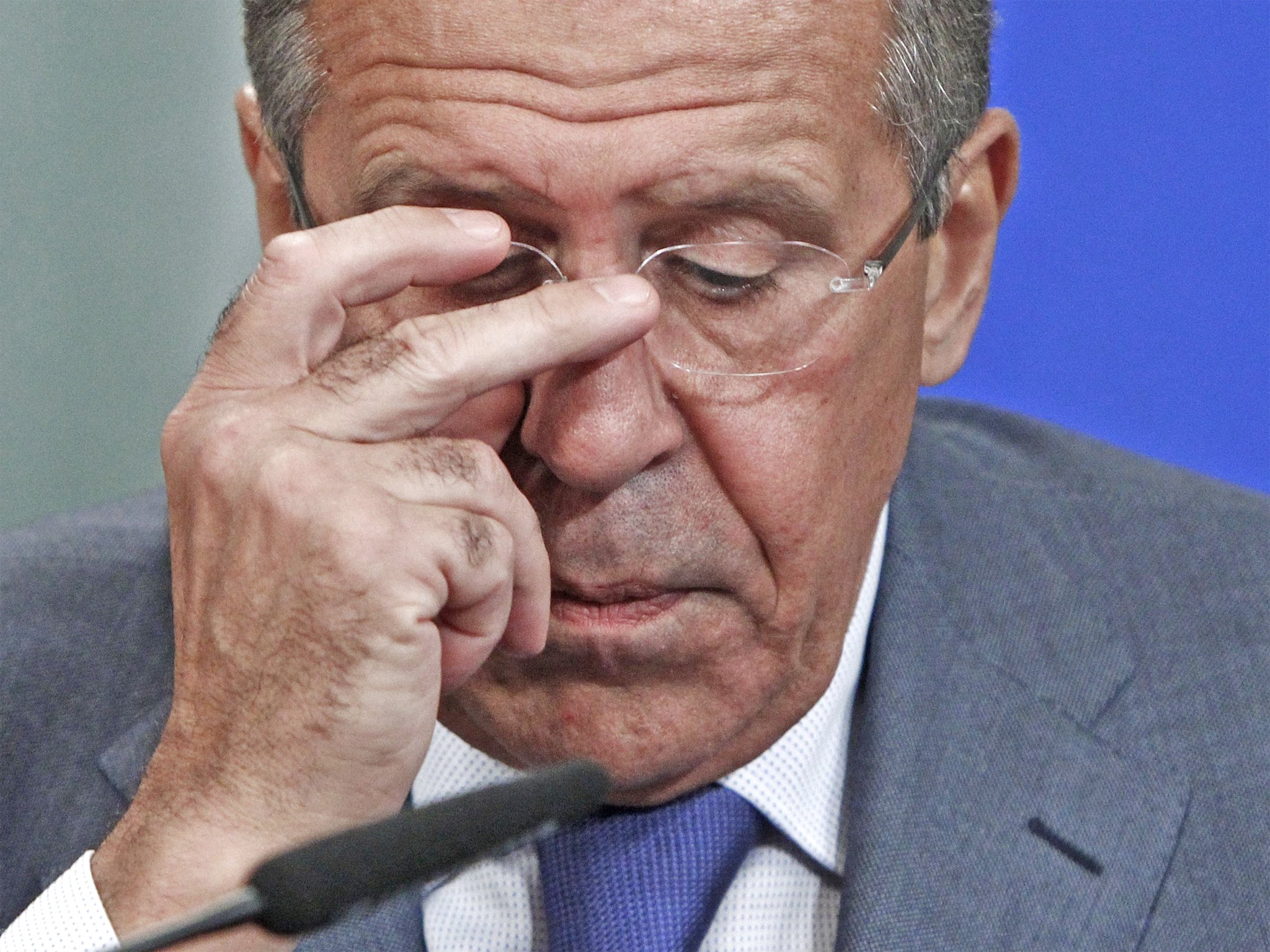Russia oppose US threats to keep the Assad deal in place
Far from celebrating a return to the world stage, the mood in Moscow is apprehensive


Less than a week after the US-Russia agreement that averted air strikes on Syria, senior members of the Russian administration are expressing fears that the deal could be scuppered by an excess of haste and grandstanding on the part of the US and its allies, which are intent on bringing a new resolution to the UN Security Council – a move that Moscow is steadfastly against.
The Russian foreign minister, Sergei Lavrov, who had allowed himself a rare smile after concluding the agreement with the US Secretary of State John Kerry, was in more sombre mood today when he said he would pass to the UN Security Council evidence that appeared to implicate Syrian rebels in the lethal gas attack of 21 August.
A report released by the UN on Monday concluded that sarin gas had been used in the attack, on an area near Damascus, but stopped short of blaming either the Assad government or opposition forces. The report prompted sharp words from Britain and France, which said that only the Assad government had the capability to mount such an attack, and Russia, which insists the evidence is not conclusive and refuses to exclude the possibility of a rebel provocation. The growing discord was crystallised at a meeting between Mr Lavrov and his French counterpart, Laurent Fabius, in Moscow on Tuesday, which ended with the two agreeing only to differ.
Speaking to the Valdai Club – an annual gathering of international Russia specialists – senior Russian officials today did nothing to conceal their misgivings about a UN Security Council Resolution drafted by the US, France and Britain, which they regard as premature in the extreme. Their view is that Syria’s agreement to sign up to the Chemical Weapons Convention, produce an inventory of its stocks and have them destroyed – an agreement brokered by Russia – represents a crucial advance and should be given time to work. Syria is due to supply its first list of chemical weapons stocks to the UN by Saturday.
What the Western sponsors of the draft may regard as a concession – omitting any reference to “serious consequences” or the use of force – is not viewed in the same way in Moscow, which regards any resolution before Syria has had time to act on its undertakings as premature.
Russia also appears concerned about anything – a fiercely-worded resolution included – that might cause President Assad to change his mind.
Such Russian concerns may help to explain why the Kerry-Lavrov agreement in Geneva, which was reported in many Western countries as a diplomatic coup for President Putin and a sign that “Russia was back” in global diplomacy, has been greeted cautiously in Russia. Far from revelling in Moscow’s supposed victory, both the Russian media and officials have been at pains to stress the fragility of the agreement – apparently distrusting both the West and President Assad’s ability – or willingness – to deliver.
While not excluding Syrian government – or military – responsibility for the August 21 attack, Russian officials today stressed that the fragments of canisters marked with Cyrillic letters and the traces of the chemicals themselves suggested that they dated from as far back as the 1950s or 1960s – when the then Soviet Union and Syria were close allies. Thank goodness, they said, that they were so out of date and amateurish.
Giving a small, but rare, insight into Russian relations with Syria, Mr Lavrov said that when Bashar al-Assad succeeded his father, relations had cooled, as he tried to “diversify” his diplomacy. When that failed, Bashar al-Assad tried to mend fences with Russia and Moscow enjoyed some – but not decisive – leverage in Damascus.
Russia, he said, could exert some pressure, as was seen, on matters concerning weapons, but not – he insisted – on whether Mr Assad went. That was a matter for him, and for the Syrians.

Join our commenting forum
Join thought-provoking conversations, follow other Independent readers and see their replies